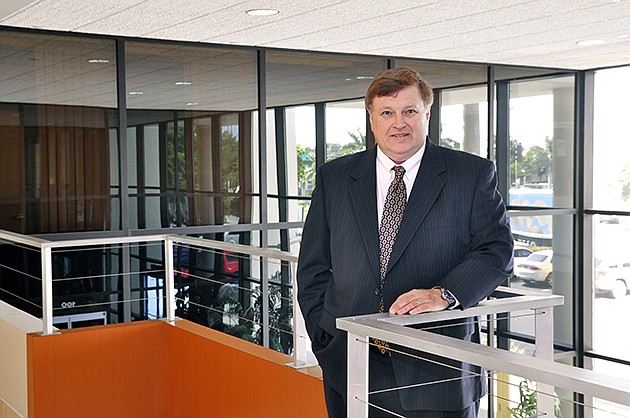- July 26, 2024
-
-
Loading

Loading

If you're a bond investor, the threat of rising interest rates looms large.
John Milne isn't waiting around for rising rates to whack the value of bonds he manages for his institutional clients. The CEO of JKMilne Asset Management in Fort Myers says a search for assets with zero correlation to swings in interest rates and bond values led him to invest in perishable commodities such as cotton, grain, coffee, milk and meats. In addition, the firm bought a stake in Chicago commodity management firm Triumph Alternatives last year.
It's a bold but calculated move. “There isn't a track record, but we don't want to sit here a couple years from now and say we did nothing,” Milne says.
It pays to listen to Milne, who had a distinguished career leading Mellon Bank's $91 billion bond-management arm with 55 employees. Today, Milne's Fort Myers-based firm manages $1.6 billion for institutional clients such as foundations, hospitals and universities. Milne's peers judged him among the top three finalists nationally for the Emerging Manager Award recently, and he was ranked among the top 500 bond managers by the respected Pension & Investments magazine.
Clients with fixed-income investments are worried that ultra-low interest rates have created a bubble in asset values in the bond market. They ask Milne: “Is there a bubble and to what extent, and how do I manage that risk?”
Certainly, bond returns have been outstanding because the values have surged as yields fell (bond prices and yields move inversely). “The bond market has done better than anyone expected,” Milne says.
But Milne has deliberately invested in high-grade bonds, such as investment-grade corporate bonds, U.S. Treasury securities and top-quality mortgages because they're very liquid and can be traded easily. He worries that lower-grade bonds might be difficult to sell if the market faces a crisis. “We don't like the prospect of limited liquidity if something breaks here,” Milne says. “The system is loaded with cheap money.”
But even high-grade, liquid fixed-income securities will be vulnerable to interest rate hikes. Hence the foray into perishable commodities, both by investing in the commodities themselves and the firm that trades them. “There's a lot of excitement at this firm right now,” Milne says.
With a team of just six people, Milne says his firm's relatively small size allows it to be nimble and creative in seeking solutions for clients. “We want to be the Tesla of money management: If I tap on the brakes, I want to generate power,” Milne says.
For example, his team is developing a fund that isn't constrained by any investment style to seek opportunities as they arise. The fund will invest in U.S. Treasuries as a base and use those funds to invest in relatively riskier fixed-income assets as they appear. “We're hoping to launch that before year end,” Milne says.
Despite the specter of rising interest rates, don't count Milne among those who think the Federal Reserve's short-term rate increases are inevitable this year. “We don't know if they have the data to support it,” he says.
One thing is certain: fixed income is a hot topic today because of debt crises in Greece, Puerto Rico, Detroit and Chicago. “At a cocktail party a bond guy showed up and everyone yawned. Now you can tell stories of near-death experiences,” Milne laughs.
Follow Jean Gruss on Twitter @JeanGruss